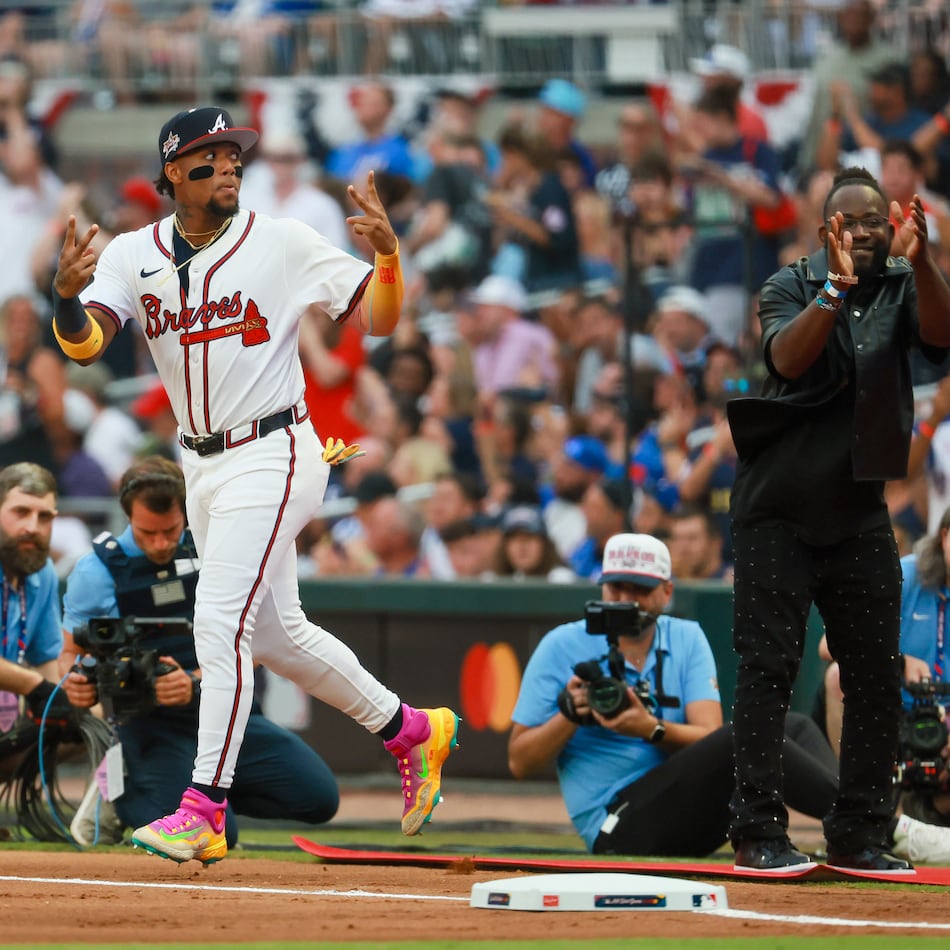An exceedingly close election brought both campaigns to the heart of a hotly contested state on Election Eve, as President Barack Obama and Republican challenger Mitt Romney made late appeals to a state the world will be watching Tuesday night.
Public polls show Obama with an edge in Ohio, though the Romney campaign disputes the numbers. The Columbus Dispatch reported the candidates’ combined 83 visits to the state – with an 84th scheduled Tuesday by Romney – is a modern-day record for Ohio.
The Buckeye State is critical for both candidates, as most paths to the White House require its 18 electoral votes. Ohio has voted with the winner in 27 of the past 29 presidential elections, and no Republican has won the presidency without it. Comedian Stephen Colbert’s Election Night coverage is titled: “A Nation Votes, Ohio Decides.”
“Both can win without Ohio, but Ohio’s kind of the icing on the cupcake,” said Jamie Chandler, a political science professor at Hunter College in New York. “The path would be much easier if either one took it.”
Both candidates called in popular entertainers to pump enthusiasm at dueling rallies in Columbus. Bruce Springsteen hitched a ride on Air Force One and told 15,500 supporters at a downtown hockey arena he’s proud to back Obama – though the president’s performance the first debate, which contributed to a Romney resurgence, “really freaked me out.” Rapper Jay Z followed, altering one song’s lyrics to “I got 99 problems but Mitt ain’t one.” He introduced the president with a song titled “Encore.”
Obama told the crowd he deserves an encore in the White House because he has fought on behalf of the middle class, and he ticked off accomplishments from repealing the ban on gays serving openly in the military to regulatory changes for Wall Street. He got his biggest cheer vowing to protect “women’s health care decisions” and accused Romney, the “very talented salesman” of repackaging the policies of Republican administrations past.
As Obama was shaking hands downtown, the Marshall Tucker Band played at a Romney rally in an airport hangar across town. “Midnight promises don’t mean anything,” they sang. “Midnight promises, you know they all sound the same.” Romney touched on the same theme: “Talk is cheap but a record is real and it’s earned. Change can’t be measured in speeches.”
Romney told more than 10,000 supporters that Obama “promised to do so very much but he has fallen so very short.” He said the president has not reduced the partisanship and acrimony in Washington and his signature achievements in health care and financial regulation have been bad for the country.
Obama said, “This isn’t just about policy, it’s also about trust. Ohio, after four years, you know me by now, you know me … You may be frustrated sometimes at the pace of change. I promise you, so am I. But you know that I mean what I say, and I say what I mean.”
Romney said, “President Obama promised change but he couldn’t deliver it. I promise change and I have a record of achieving it.”
Romney will return to Ohio Tuesday for a rally in Cleveland but also will go to Pittsburgh, his second Pennsylvania visit in three days and an attempt to nab 20 electoral votes from a state that has not gone Republican since 1988. A Pennsylvania win would give him more avenues to the magic number 270. Obama visited Ohio, Wisconsin and Iowa on Monday; his holding all three Midwestern battlegrounds would almost certainly assure a second term.
“Ohio remains a very difficult nut for them to crack,” Obama campaign spokeswoman Jen Psaki told reporters on Air Force One on Monday. “And we feel we have a superior ground game and a superior campaign in the state and we’re confident of victory there tomorrow.”
Most polls and forecasts predict a slim Obama victory, and they have drawn considerable skepticism from Republicans. Many Republicans argue that polls oversample Democrats and need to be “unskewed.”
Scott Keeter, the director of survey research at Pew Research Center, said Pew weights its polls to get a representative sample based on age, race and area of the country but does not adjust for party identification because voters occasionally switch.
Keeter said the partisan mix at the ballot box will be hard to predict and is unlikely to mirror the results of recent elections.
“The unskewing idea fundamentally imposes some external justification about reality on what should be an empirical process – calling a random sample of people and reporting what they say,” Keeter said.
According to a Romney campaign staffer who requested anonymity to discuss that team’s thinking, the campaign expects Democrats to have about a 3-percentage-point advantage in Ohio — well below the forecast in some recent surveys that have samples showing eight- or nine-point Democratic edges.
But the staffer said a Romney win in Ohio remains highly doubtful, putting more pressure on the campaign to deliver deadlocked Virginia’s 13 electoral votes, along with several other smaller swing states.
Terry Casey, a Columbus-based Republican consultant, said he will be watching turnout in the heavily Democratic Cleveland area and in the Republican stronghold of Southwest Ohio, where Romney held a massive rally Friday night.
“Everything I understand, it’s basically dead even,” he said.
And it might not be decided Tuesday.
Speaking before the airport rally, Ohio Attorney General Mike DeWine said the margin could be so close that America may have to wait until Ohio counts its provisional ballots on Nov. 17. He also conceded that results that close may trigger legal wrangling from each campaign and interest groups.
“We have to wait and see,” said DeWine, a Republican. “We will not initiate it but we’ll respond, the secretary of state will respond” to such lawsuits.
About the Author
Featured
